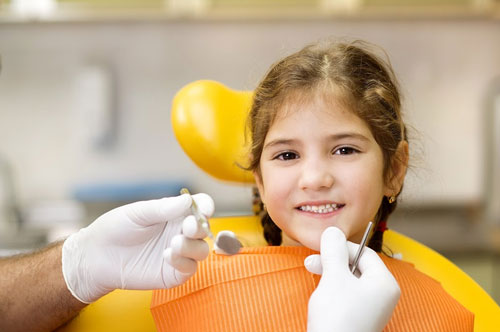My kids and I have all had a great experience at Dr. Harrell’s office. The whole staff is friendly, professional and knowledgeable. Every detail was explained in advance so I knew exactly what to expect. I would confidently recommend Dr. Harrell and his staff to anyone.

Have you ever wondered about the state of your breath when you wake up? If it’s less than fresh, you’re not alone. Today, we wanted to explore the factors contributing to your bad breath and discuss effective treatment options. While your oral care routine plays a crucial role, other surprising elements are at play.
Common Causes of Bad Breath
- Oral Hygiene Habits
A solid oral care regimen is your first line of defense. Aim for twice-daily brushing sessions lasting at least two minutes each and daily flossing. This routine helps eliminate bacteria and stubborn food particles that can lead to unpleasant odors. For optimal effectiveness, remember to swap out your toothbrush head every three to four months.
- Frequent Tobacco Usage
All forms of tobacco use can leave their mark on your breath. Whether you smoke, chew, or use other tobacco products, they not only affect your breath directly but also increase your risk of gum disease – another potential source of odor. Not to mention the heightened risk of oral cancer. For your oral and overall health, consider quitting tobacco use altogether.
- Dietary Influences
Some foods linger longer than others when it comes to breath impact. Garlic and onions, for instance, can affect your breath even after brushing and flossing. Their odor-causing compounds need to fully process through your body before dissipating. Other culprits include citrus juices, meat products, dairy, and carbonated beverages.
- Gum Disease Connection
Bacteria accumulating along your gumline can lead to gum disease and, as a result, breath issues. In fact, persistent bad breath is often a telltale sign of gum problems. If you notice receding gums, inflammation, loose teeth, or bleeding during oral care, it’s time for a dental checkup. We’ll look for those indicators and recommend treatment if you show signs of gum disease.
- Medication Side Effects
Certain medications can unexpectedly influence your breath. While it’s often necessary to continue prescribed treatments, maintaining rigorous oral hygiene practices can help mitigate these effects. Regular dental checkups are also crucial for thorough cleanings and early detection of any oral health concerns.
Effective Treatments for Bad Breath
If you’re struggling with persistent bad breath, don’t worry. There are several effective treatments available:
- Improve Oral Hygiene: Brush teeth thoroughly twice a day for at least two minutes. Floss daily to remove food particles between teeth. Use a tongue scraper to clean the tongue’s surface. Rinse with an antibacterial mouthwash.
- Stay Hydrate: Drink plenty of water throughout the day. This helps wash away food particles and bacteria.
- Chew Sugar-Free Gum: This stimulates saliva production, naturally cleansing the mouth. Choose gum with xylitol, which can help reduce bacteria.
- Dietary Changes: Limit foods that cause bad breath (e.g., garlic, onions). Eat crunchy fruits and vegetables to help clean teeth.
- Quit Smoking: This eliminates tobacco-related breath odors and improves overall oral health.
- Professional Dental Cleaning: Regular dental exams and cleanings remove plaque and tartar buildup.
- Treat Underlying Conditions: Address issues like gum disease or dry mouth with your dentist. Consult a doctor for potential systemic causes (e.g., sinus infections, gastrointestinal issues).
- Use Specific Products: Try breath freshening products, like mouth rinses, and use them between meals to keep your mouth smelling great.
Remember, persistent bad breath could indicate an underlying health issue. If home remedies and improved oral hygiene don’t solve the problem, give us a call. Your dentist will perform a thorough exam and recommend a solution. With the right approach, you can enjoy fresh breath and improved oral health.
Call Clinton Harrell DDS at 360-450-5253 for an appointment in Vancouver, WA. You can also request an appointment online



